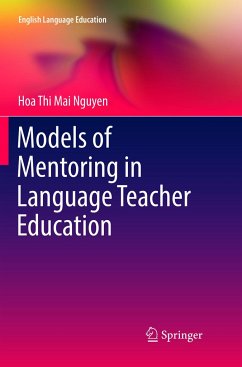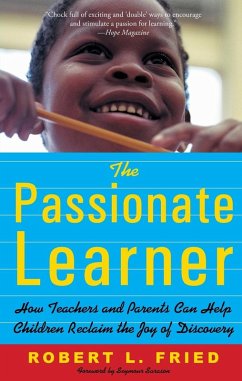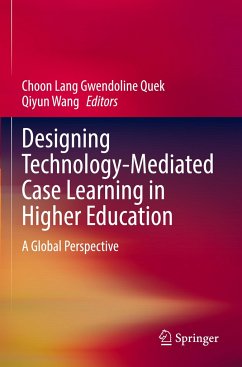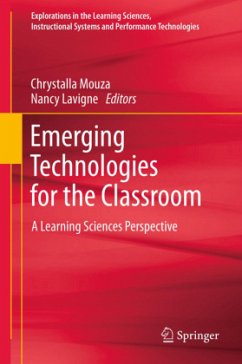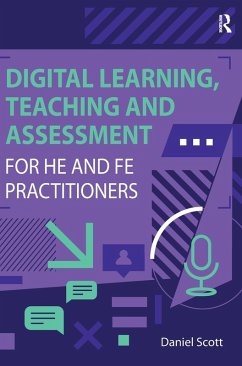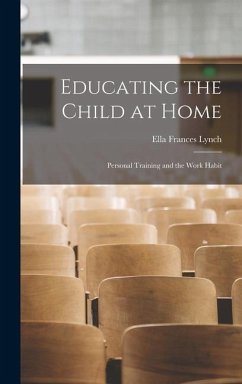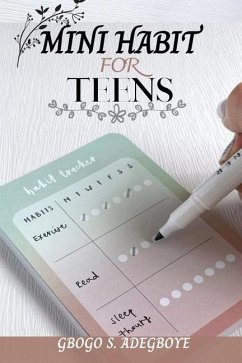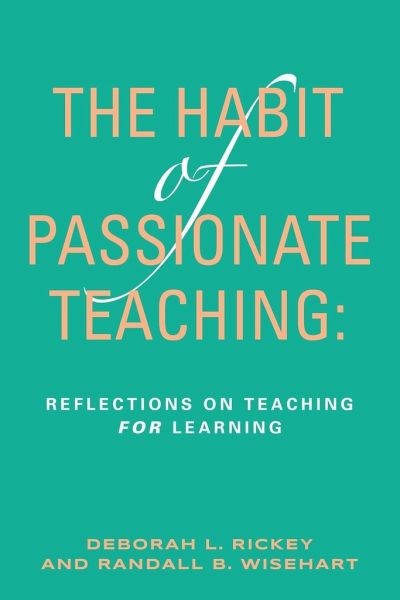
The Habit of Passionate Teaching
Reflections on Teaching For Learning
Versandkostenfrei!
Versandfertig in 1-2 Wochen
32,99 €
inkl. MwSt.

PAYBACK Punkte
16 °P sammeln!
Deborah Rickey and Randall Wisehart have spent more than 80 years in the field of education as teachers and administrators. In The Habit of Passionate Teaching, they share what they have learned from their students in middle school, high school, and teacher preparation programs. The motivation for this book comes from the authors' deeply held belief that it is crucial for teachers to share their knowledge about teaching (their craft knowledge) so that every generation of teachers can build on what has worked in the past. Based on interviews with dozens of experienced teachers and with the addi...
Deborah Rickey and Randall Wisehart have spent more than 80 years in the field of education as teachers and administrators. In The Habit of Passionate Teaching, they share what they have learned from their students in middle school, high school, and teacher preparation programs. The motivation for this book comes from the authors' deeply held belief that it is crucial for teachers to share their knowledge about teaching (their craft knowledge) so that every generation of teachers can build on what has worked in the past. Based on interviews with dozens of experienced teachers and with the addition of their own experience, the authors describe and explore what teachers said about becoming effective and "passionate" teachers and how the practices became a habit. The teachers whose voices are shared throughout the book have found success in teaching over a span of five, ten, even twenty and more years. They have bucked the trend that has seen so many teachers leaving the profession after three years or fewer. The authors sought to discover why these teachers chose to stay in the profession. The emerging answer to the question is that these teachers learned and employed practices of passionate teachers and honed the practices until they became a habit, a habit of passionate teaching. The authors highlight the importance of practices that veteran teachers shared during interviews and focus group sessions. One practice is reflecting. Teachers reported the importance of reflecting before, during and after teaching in order to help them focus on student learning. Another practice is nurturing relationships. Teachers shared that building positive relationships with their students was an essential practice. The practice of engaging in an action research mindset was also listed as an important practice. Teachers were clear that having a question or wondering about student learning was crucial. Yet another practice is seeking the perspective of their own students in their journey to the habit of passionate teaching. Seeking the student perspective was an essential element of their teaching practice. Teachers shared how they sought and acted on the student perspective in both formal and informal ways. Finally, the practices of listening and questioning were described as being threaded throughout these teachers' professional lives. Listening was crucial in understanding the student perspective and helped create a classroom culture that led to teachers and students being partners in learning. Questioning was described in a very specific way in the context of this book. Teachers explained the importance of asking questions they did not know the answer to as an important way to emphasize that answers lay in exploration not in the teacher's head. Learning and employing practices of passionate teachers is not an easy process. Teacher anecdotes and examples clearly demonstrated a commitment of these veteran teachers to being lifelong learners. The teachers whose words are shared throughout this book, were clear that being a good teacher means always inquiring about what is working and what isn't and making the necessary adjustments. This book is built around stories and insights of teachers who have made a commitment to the habit of passionate teaching. This book includes important ideas that teachers reported were key to filling them with hope and helping them understand what it means to be a good teacher. In addition, the teachers and authors share specific strategies, practices, and protocols that can be adapted for elementary, secondary, and post-secondary classrooms. This book describes the craft knowledge of the authors and veteran teachers in hopes that other educators can build on the ideas and, in the future, share their own craft knowledge.





